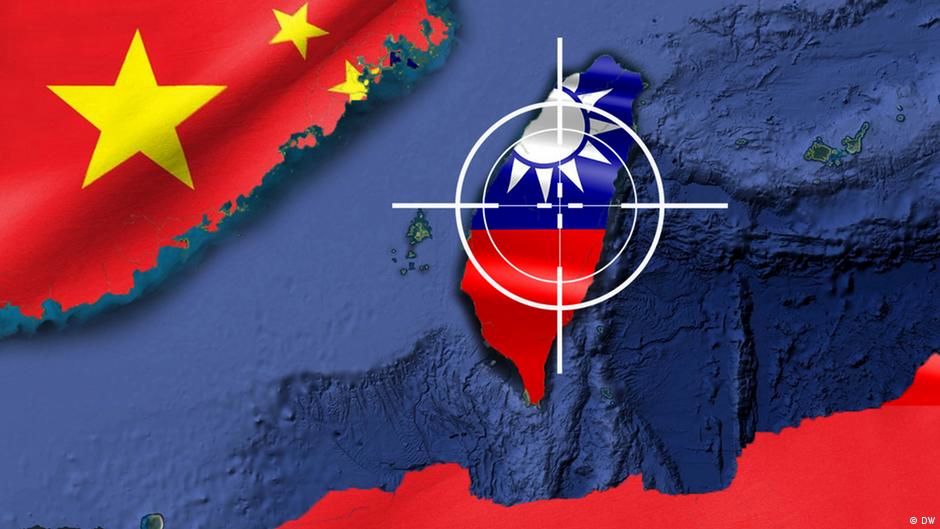Within the recent weeks, the tension re-escalated just when Nancy Pelosi, Speaker of the U.S. House of Representatives paid a visit to Taiwan on August 2, 2022, and called the visit as a symbol of the U.S. “unconditional support” to Taiwan. The visit promoted relations between the U.S. and Taiwan.
The U.S. had already claimed that it did not deal with Taiwan as an independent state, but the visit paid by such a ranking authority like the Speaker of the U.S. House of Representatives with official protocol, made Beijing to assess it otherwise.
In fact, the U.S. challenged China’s credibility and threats after Pelosi’s visit to Taiwan. Because with its widespread military movements around Taiwan, China had expressed it would not let the visit materialize. On the other side, the U.S. did not withdraw from Pelosi’s visit and made it possible through aerial military escort. Therefore, in the course of the visit, not only relations between the U.S. and Taiwan promoted but also China’s credibility was seriously challenged.
To react the U.S. measure, in addition to imposing sanctions on Nancy Pelosi and suspending of some international cooperation with the U.S., China launched its largest military scale war game around Taiwan. In the course of the military war game, China’s fighters breached Taiwan’s airspace several times and fired several ballistic missiles to surrounding waters of Taiwan.
In reaction to China’s threats against Taiwan, and several weeks after Pelosi’s visit, the U.S. Administration declared that it intended to give $ 1.1 billion worth of military weapons to Taiwan. The military package comprises of radar systems, air raids and missile attacks warming systems worth $ 655 million and another $ 355 million for sixty Harpoon missiles system capable to target warships. Pentagon has also declared that surface – to air and air – to air missiles worth about $ 90 million are other parts of the military package.
The decision made by the U.S. Administration should be approve by the U.S. Congress. In view of bipartisan consensus of the U.S. stance on Taiwan’s support, it will, undoubtedly and easily, receive the seal of endorsement of the Congress. It was mid- August when the U.S. and Korea held a joint aerial drill in Hawaii and on August 28, 2022 a joint military exercise between the U.S. and Japan began. Although joint military war games between the U.S. – South Korea and the U.S. – Japan were aimed to send a message to North Korea but in the meantime, they could be interpreted as sending message to China too.
To react the U.S. measures, China continued its military movements around Taiwan and issued a warning on the U.S. supports to Taiwan. It is predictable that the U.S. will react to continue its supports to Taiwan in different forms.
It is obvious that at macro – level of international system, there is a possibility for the outbreak of further competition and (even) military confrontation between the U.S. and China. The U.S. assesses China as a threat against “liberal international system”, that’s why it made efforts from Obama presidency to form new coalitions and alliances in the neighborhood of China. According to what has been included in Biden’s Interim National Security Strategic Guidance, the present Administration in Washington is committed to strengthen previous alliances and coalitions.
Taiwan is the most important issue in the broad image of competition between the two countries. China’s domination over the island means the end of the U.S. withdrawal from East Asia. Likewise, preserving the island from China’s domination by the U.S. would mean that it continues to play as an effective player in interactions of authority in East Asia.
Amid all these developments, it is important to mention the point that action and reaction in interactions between China and the U.S. on Taiwan is coupled with the risk of miscalculation and possibility of the outbreak of a war. That means Beijing may think that it should attack and annex Taiwan before it further strengthens its military capabilities, or it may come to assess that the U.S. will not engage itself in defending Taiwan. If China makes such miscalculations, then outbreak of confrontation and at higher level, stage a war between the two countries will be unavoidable.
On the opposite side, the U.S. may come to assess that strengthening Taiwanese military capability and the U.S. support to Taiwan may boost “deterrence mechanism” and thus prevents China to attack Taiwan. While such a U.S. objective may increase China’s concerns and make it stage pre-emptive measure.
It is obvious that “Taiwan” is a decisive issue in competition between the U.S. and China.
Characteristics and Strategic Consequences of Iran’s Historic Response to Zionist Regime
Strategic Council Online—Opinion: There are two different views about the Islamic Republic of Iran’s missile attacks against the Zionist regime. The first view is based on a superficial reading and a reductionist description that evaluates it as a low-impact and not-so-extensive operation. The second view, a realistic reading, sees Iran’s response as opening a new page of “balance of power” and “turning point” in regional equations, the effects and consequences of which will gradually emerge.










0 Comments